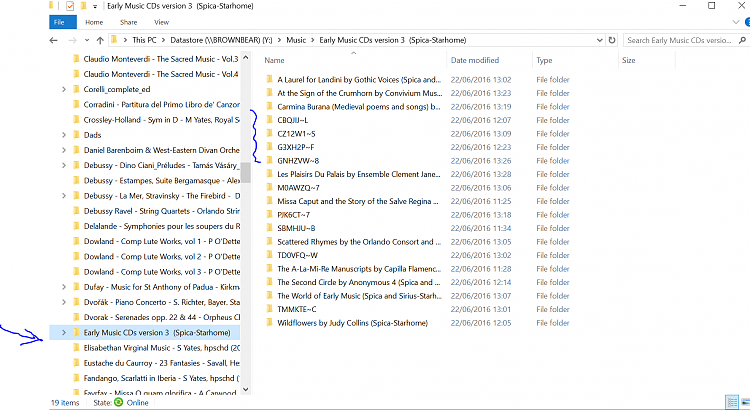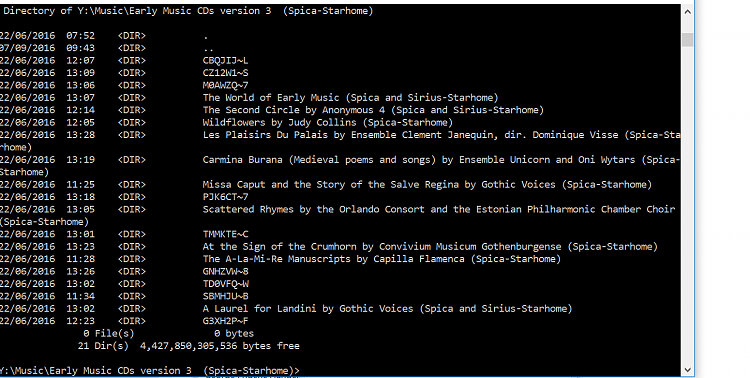New
#1
Note on ReFS for windows (Long File names)
Hi there
After using gpedit.msc and setting option for long file names - and a reboot -- still not working (Windows 10 Pro ver 1607)
Here's the folder from my server running Linux Centos 7 as its OS. All OK
Here's the folder as seen by a Windows client --you can see it's totally hosed
Android based OS'es for example Bose wireless speakers using the Bose sound touch app to access server via plex, Android phones, smart TV's accessing the server via Plex all work just fine - windows has problem with the longer file names including PLEX on the windows client (although I don't bother with PLEX on the windows client - I run PLEX from the server - was just testing Windows for the file names).
Squeezebox server / Logitech media server on Linux also accesses files OK on your client squeezeboxes --still a great remote system and was far cheaper than Sonos !!!! plus optical output into amplifier too and plays FLAC as well. !!! Unfortunately these are no longer made but still work beautifully. I also have one of these in my Shed a good 200 metres away from the house - my Wifi is good enough though. !!
Testing running the Squeezebox server on Windows -- also gave file name problems for accessing the music on the remote squeezeboxes. No probs when the remote squeezeboxes used as a Client from the Linux server.
Maybe some Ms enabled apps might work but that's no good if you are running servers using Windows Clients to access the files -- and it's a long if not impossible job to re-name and re-tag zillions of these files.
It's about time IMO to get rid of the stupid file name length restriction -- how many years ago was Dos superceeded --Windows 98 I believe was the first windows not based on DOS as the underlying kernel.
Edit : I think in the comments to setting the file system the minimum requirement is Windows Server 2016 although it does specify Windows 10 as well so Ms might have pulled this feature at the last minute.
Cheers
jimbo
Last edited by jimbo45; 09 Sep 2016 at 02:31.






 Quote
Quote
